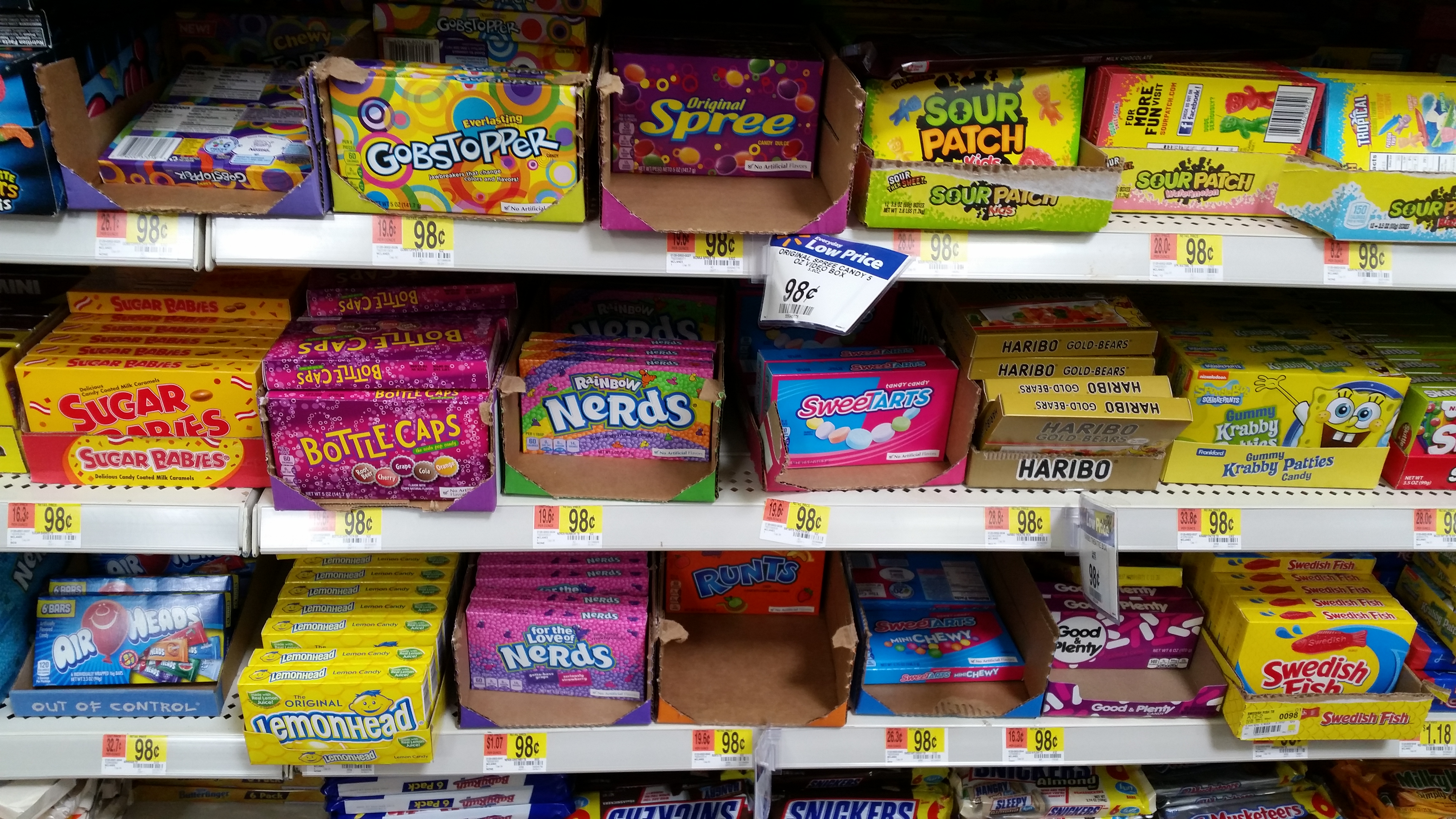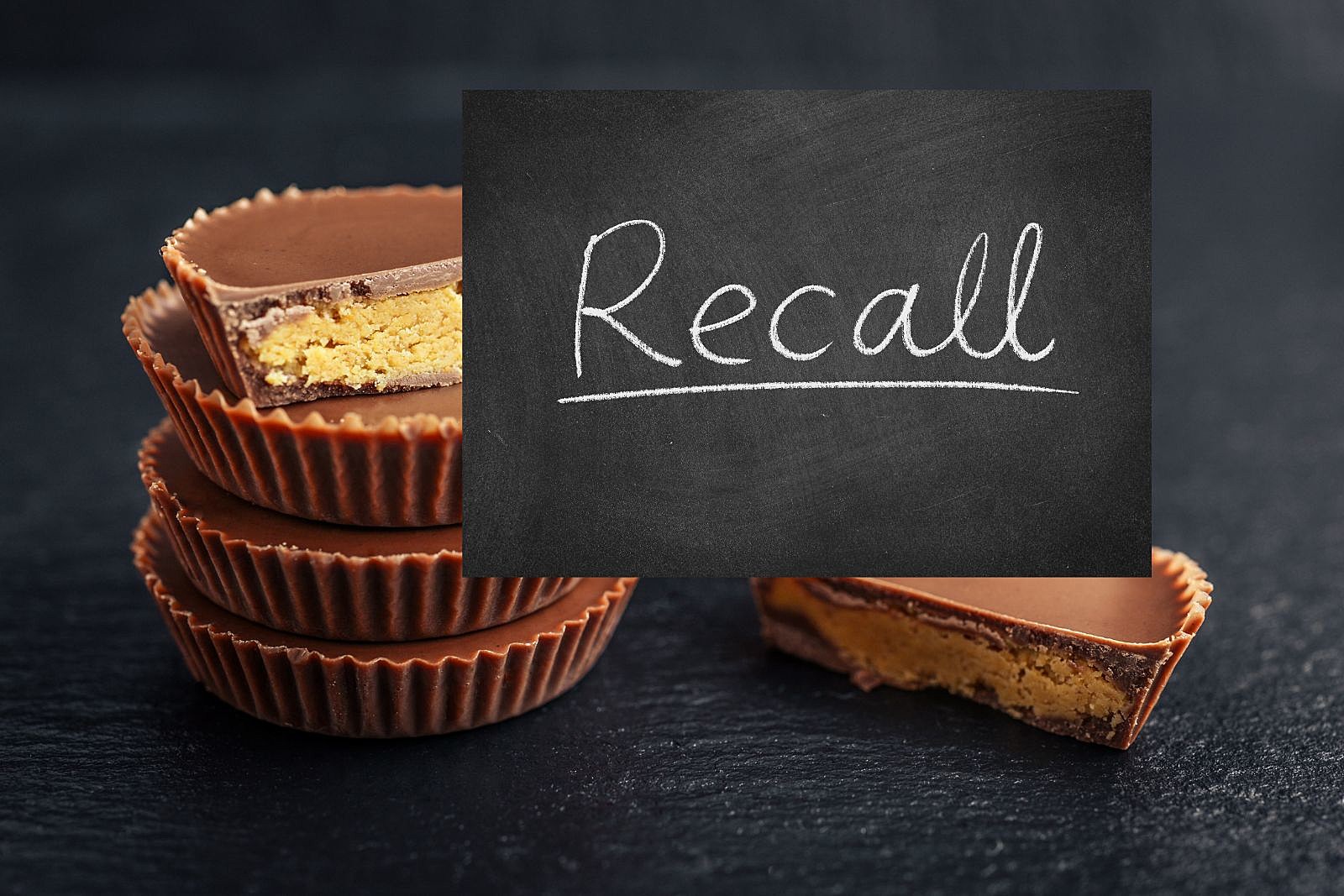Walmart Recall History

Walmart, the world’s largest retailer, has a long history of product recalls, including instances involving candy. While these recalls are a necessary step to ensure consumer safety, they can have a significant impact on the company’s reputation and customer trust.
Timeline of Major Candy Recalls
Walmart has issued several candy recalls in recent years, with the most notable ones involving potential health risks. Here’s a timeline of these events:
- 2023: In February, Walmart recalled several varieties of chocolate-covered pretzels due to the presence of undeclared milk, a potential allergen. The recall was initiated after consumer complaints and an investigation by the Food and Drug Administration (FDA).
- 2022: In July, Walmart recalled a batch of gummy candies due to the potential presence of Salmonella contamination. The recall was triggered by a routine inspection by the FDA, which identified the bacteria in a sample of the candy.
- 2021: In November, Walmart recalled a specific brand of hard candies due to the presence of undeclared peanuts, another potential allergen. This recall was initiated after a consumer reported an allergic reaction after consuming the candy.
- 2020: In May, Walmart recalled a variety of chocolate bars due to the potential presence of foreign objects, including small pieces of metal. The recall was prompted by consumer complaints and an internal investigation by Walmart.
- 2019: In September, Walmart recalled a batch of gummy candies due to the potential presence of undeclared gluten, an allergen for individuals with celiac disease. This recall was initiated after a consumer complaint and a subsequent investigation by the FDA.
Reasons for Candy Recalls
The reasons behind candy recalls at Walmart are diverse, but some common themes emerge.
- Undeclared Allergens: Several recalls have been initiated due to the presence of undeclared allergens, such as milk, peanuts, and gluten. These ingredients can pose serious health risks to individuals with allergies.
- Foreign Objects: Contamination with foreign objects, such as metal fragments, pieces of plastic, or other debris, is another frequent reason for recalls. This can be a result of manufacturing errors or inadequate quality control.
- Microbiological Contamination: The presence of bacteria like Salmonella can lead to foodborne illnesses and necessitates recalls. This contamination can occur at various stages of production, from raw materials to packaging.
- Mislabeling: Inaccurate labeling, such as incorrect ingredient lists or nutritional information, can also lead to recalls. This can be due to human error or faulty labeling equipment.
Impact on Reputation and Consumer Trust
Candy recalls can significantly impact Walmart’s reputation and consumer trust.
- Negative Publicity: Recalls often generate negative media attention, which can damage the company’s image and affect customer perception.
- Loss of Sales: Recalls can lead to significant financial losses for Walmart, as they require removing affected products from shelves and potentially refunding customers.
- Erosion of Trust: Recalls can erode consumer trust in Walmart’s commitment to product safety and quality. Customers may become hesitant to purchase candy or other products from the retailer.
- Legal Consequences: Recalls can also lead to legal action from consumers who experience adverse effects from contaminated or mislabeled products.
Types of Candy Recalled: Walmart Recalls Candy

Walmart, like any major retailer, has faced numerous candy recalls over the years. These recalls stem from various factors, including potential health risks associated with ingredients, manufacturing issues, and packaging concerns.
Common Candy Types Recalled, Walmart recalls candy
A closer examination of Walmart’s candy recall history reveals certain types of candies are more frequently subject to recalls. These include:
- Chocolate Products: Chocolate, in its various forms, is a common culprit in candy recalls. This is due to its susceptibility to contamination from allergens like nuts or dairy, as well as potential issues with manufacturing processes.
- Gummy Candies: The chewy texture of gummy candies can make them prone to choking hazards, particularly for young children. Additionally, some gummy candies contain artificial colors and flavors that may pose health risks if not properly regulated.
- Hard Candies: Hard candies, like lollipops and rock candy, can present a choking hazard, especially for children under the age of five. They can also contain ingredients that may trigger allergic reactions.
Reasons for Recalls
The reasons behind candy recalls are multifaceted. Here are some of the most common factors:
- Allergen Contamination: Undeclared allergens, such as peanuts, tree nuts, dairy, or soy, are a major cause of candy recalls. This can occur during manufacturing, packaging, or even during shipping and storage.
- Manufacturing Defects: Problems with the manufacturing process, such as improper mixing, heating, or cooling, can lead to the production of unsafe candy. These defects can result in the presence of foreign objects, mold, or other contaminants.
- Packaging Issues: Mislabeling, incorrect ingredient lists, or defective packaging can lead to recalls. These issues can create confusion for consumers and potentially lead to allergic reactions or other health problems.
- Choking Hazards: Candy with small, hard pieces can pose a choking hazard, especially for young children. Recalls may be initiated if the candy’s size or shape is deemed unsafe.
Candy Recall Examples
Here is a table that showcases a few examples of candy recalls by Walmart, along with the manufacturers and reasons for the recall:
| Candy Type | Manufacturer | Reason for Recall |
|---|---|---|
| Chocolate Bars | Hershey’s | Undeclared peanut allergen |
| Gummy Bears | Haribo | Possible choking hazard for young children |
| Lollipops | Chupa Chups | Mislabeled ingredients, including artificial colors |
Consumer Impact and Safety

Candy recalls can have a significant impact on consumers, both in terms of their health and their purchasing decisions. Understanding the potential risks associated with consuming recalled candy and the steps to take if a recall occurs is crucial for ensuring consumer safety.
Potential Health Risks
Recalled candy can pose various health risks, depending on the reason for the recall. Some common risks include:
- Allergens: Candy may contain undeclared allergens, such as peanuts, tree nuts, milk, or soy, which can trigger severe allergic reactions in sensitive individuals.
- Contamination: Candy may be contaminated with bacteria, such as Salmonella or E. coli, which can cause food poisoning.
- Foreign Objects: Recalls may be issued due to the presence of foreign objects, such as metal fragments or pieces of plastic, which can cause choking or internal injuries.
- Mislabeling: Candy may be mislabeled, leading to the consumption of ingredients that are not intended for human consumption.
Steps to Take if You Have Purchased Recalled Candy
If you have purchased candy that has been recalled, it is important to take the following steps:
- Check the Recall Notice: Carefully review the recall notice to identify the specific products and lot numbers affected by the recall.
- Discard the Candy: Do not consume any recalled candy. Dispose of it properly, preferably in a sealed container to prevent accidental consumption.
- Contact Walmart: Contact Walmart to inquire about a refund or exchange for the recalled candy. They may have a specific process in place for handling such situations.
- Monitor Your Health: If you have consumed recalled candy, monitor your health for any signs of illness or adverse reactions. If you experience any symptoms, seek medical attention immediately.
Effectiveness of Walmart’s Communication Strategies
Walmart’s communication strategies during recall situations are generally considered effective. They utilize a multi-pronged approach that includes:
- Public Announcements: Walmart issues public announcements through various channels, such as their website, social media, and press releases, to inform consumers about recalls.
- In-Store Signage: Walmart places signage in their stores to alert customers about recalled products. These signs typically include details about the recall and instructions on what to do if a customer has purchased the recalled product.
- Customer Service: Walmart provides dedicated customer service channels for consumers to report concerns about recalled products and receive guidance on how to proceed.
- Product Removal: Walmart promptly removes recalled products from their shelves and inventory to prevent further sales.
